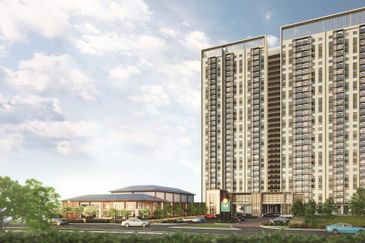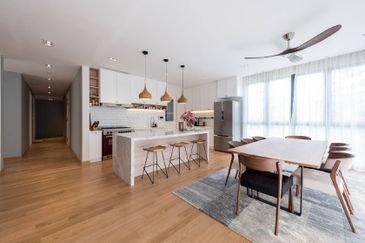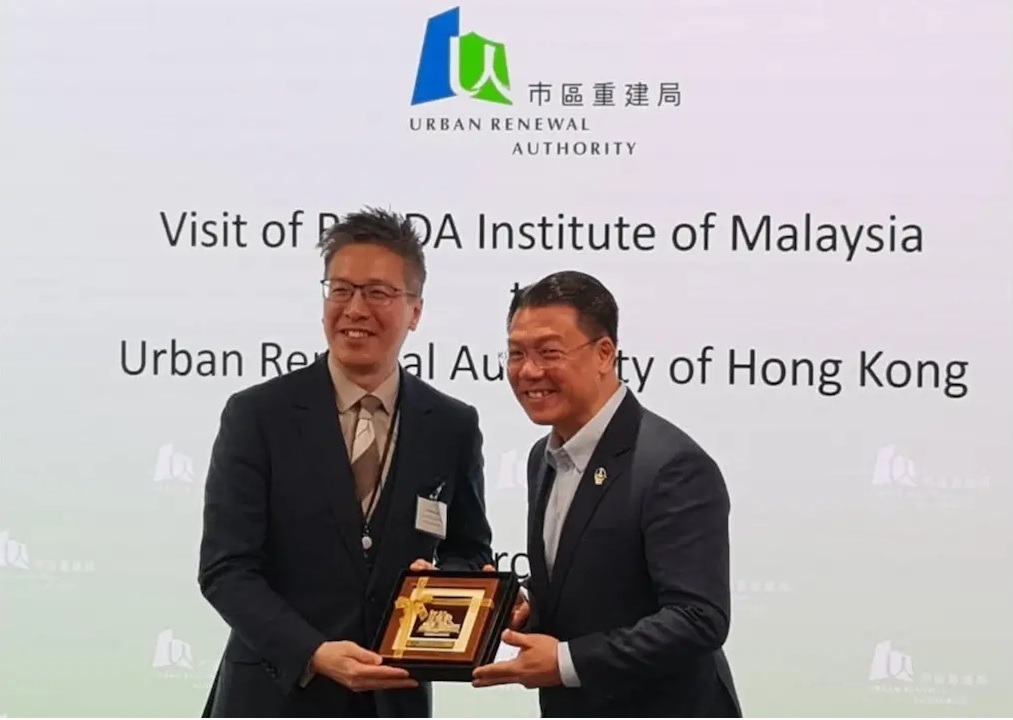
- Housing and Local Government Minister Nga Kor Ming: Therefore, many of our cities, especially in Kuala Lumpur, are potential slums if we do not do anything. Twenty years later there will be many ugly, dilapidated, unliveable strata properties in KL especially in Pandan Indah, Sentul, Cheras and even Petaling Jaya.
HONG KONG (March 8): The Urban Redevelopment Act is being drafted and once the Act is in force, there are 139 potential redevelopment sites within Kuala Lumpur that developers can bid for, according to Housing and Local Government Minister Nga Kor Ming.
Speaking to a press conference at the Rehda Institute’s Asia Real Estate Leaders (AREL) Hong Kong Edition study tour, he noted that many of the buildings in the country are ageing buildings. According to the common engineering standard benchmark, each building's lifespan is an average of 70 years.
“Therefore, many of our cities, especially in Kuala Lumpur, are potential slums if we do not do anything. Twenty years later there will be many ugly, dilapidated, unliveable strata properties in KL especially in Pandan Indah, Sentul, Cheras and even Petaling Jaya. That is the reason why this year, one of the main focuses of KPKT (Housing and Local Government Ministry) is to table the first Urban Redevelopment Act of the country," he said, adding that the Attorney General's Chambers’ drafting division is drafting the law, where the master guidelines of urban redevelopment had gained Cabinet approval in 2023.
He added that with this Act in place, it will allow for redevelopment of existing buildings to increase its economic value and also create more jobs and investment opportunities. He further emphasised that the Act “will be a fair and balanced legislation that will protect the house owners”.
“Our proposed Urban Redevelopment Act will be more comprehensive than other countries, where the scope of the Act will not only cover existing projects, it will also cover abandoned projects. We are proposing a consent threshold of 51%, a simple majority, for abandoned projects. In order to protect existing owners, they will be compensated with a fair value subject to valuation,” said Nga.
In anticipation of the Act, KPKT has engaged with various agencies and local authorities, such as Kuala Lumpur City Hall (DBKL), to identify areas that are in need of redevelopment. DBKL has since identified 139 potential sites covering about 1,372 acres of land within its jurisdiction which are fit for redevelopment. This covers four scopes.
“Number one, urban redevelopment, which means you demolish and rebuild. Second, urban regeneration, certain parts you revitalise. Third, urban revitalisation and last, but not the least, urban re-conservation, some buildings especially those with national heritage status, cannot be demolished but to re-conserve,” he said.
Nga went on to say that he hopes property developers, particularly members of Rehda Malaysia and other building professionals, will aid the government’s desire to redevelop ageing buildings, especially those “certified as unsafe”.
The 139 potential sites can be found on the DBKL website.
“The current challenge faced by us is the redevelopment consent threshold stated in Section 57(4) of the Strata Management Act, which is 100%. That is the reason why KPKT has conducted a thorough comparative study of best practices of many developed countries including South Korea; Tokyo, Japan; Shanghai and Hong Kong, China; and Singapore.
“The highest benchmark now is Singapore. If a building is under 10 years old, it requires a 90% consent threshold under the Urban Renewal Authority, while those over 10 years old require an 80% consent threshold. Whereas for Tokyo, it is 66.7%, two-thirds majority. Shanghai is also two-thirds majority. Therefore, KPKT is proposing a consent threshold between 75% and 80%, depending on the age of the building. And let me emphasise, this is subject to further discussion," he said regarding the amendment to the Strata Management Act.
In addition, there will also be the setting up of an urban renewal authority and also a land tribunal. Nga highlighted that the housing tribunal under KPKT had a 99.84% success rate or 11,607 cases within the prescribed period last year and as such, the land tribunal will be parked under KPKT, making for quick and efficient resolution to any issues that arise on land matters.
Held from March 5 to 8, the Rehda Institute’s AREL Hong Kong Edition study tour saw about 60 delegates visiting developments in Hong Kong and Shenzhen and engaging with developers and local authorities to understand their best real estate practices.
Looking to buy a home? Sign up for EdgeProp START and get exclusive rewards and vouchers for ANY home purchase in Malaysia (primary or subsale)!
TOP PICKS BY EDGEPROP

Cheria Residences, Tropicana Aman
Telok Panglima Garang, Selangor

Bandar Puncak Alam
Bandar Puncak Alam, Selangor

Bandar Puncak Alam
Bandar Puncak Alam, Selangor
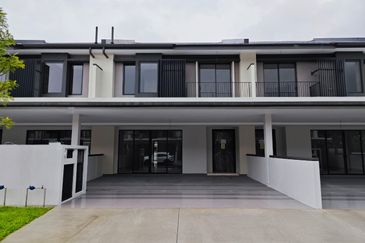
Elemen Residences @ Tropicana Aman
Telok Panglima Garang, Selangor
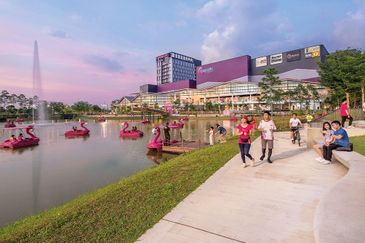
Luxura Residence @ twentyfive.7
Kota Kemuning, Selangor


